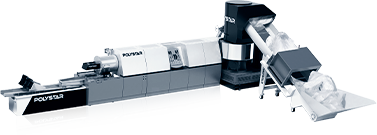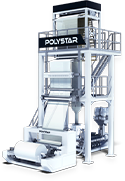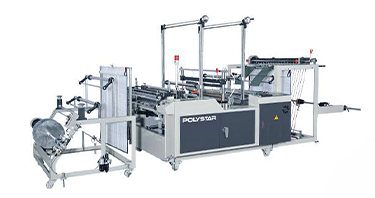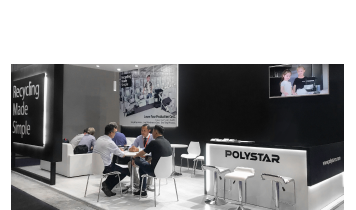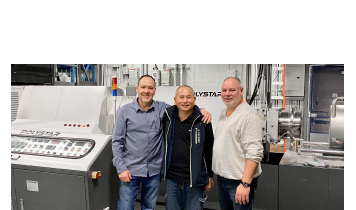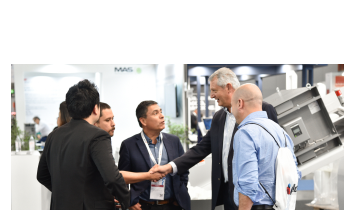We use cookies and other tracking technologies to improve your browsing experience on our website, By clicking "Accept All," you agree to allow cookies to be placed to enhance your browsing experience on this website to show you personalized content and targeted ads, to analyze our website traffic, and to understand where our visitors are coming from. You can manage your cookie settings below. Clicking "Confirm" indicates your agreement to adopt the current settings.
4 Reasons to Start Recycling Factory Plastic Wastes In-House
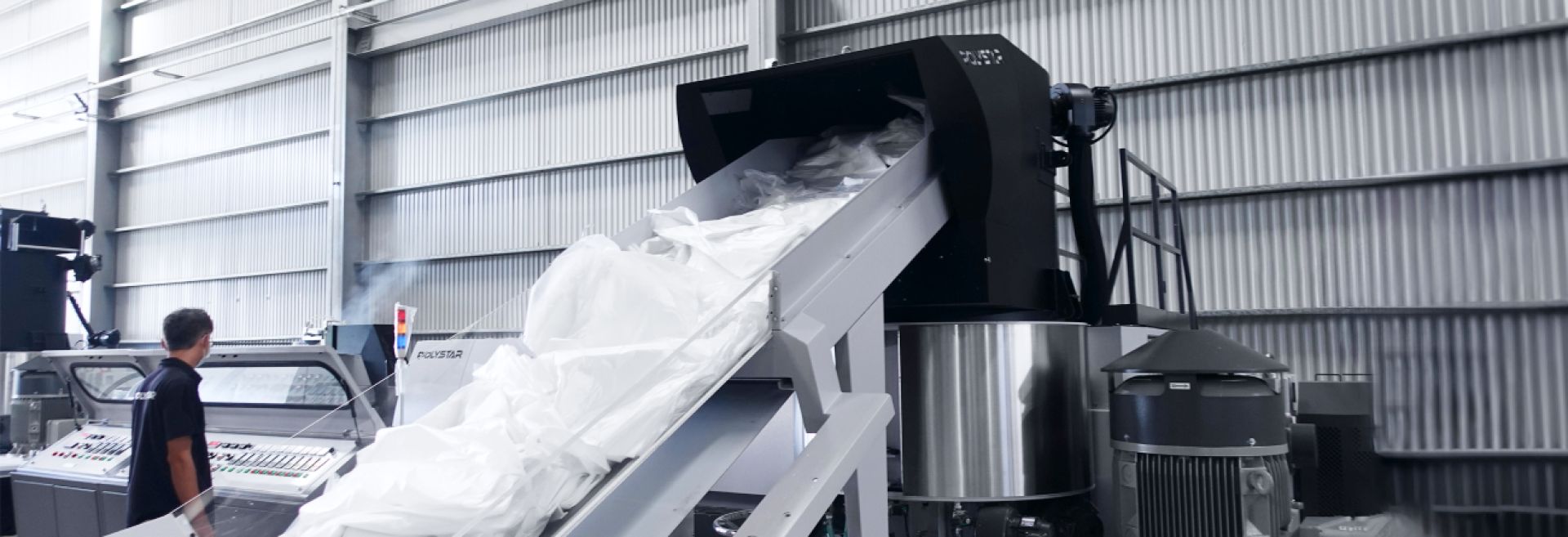
Recycling plastic waste is considered an important issue for governments as well as the industry in order to protect the environment and sustainability through a circular economy. Now, with the efforts of both parties, plastic recycling and usage of recycled pellets in manufacturing are increasingly led by EU Commission and many countries such as Germany, the US, the UK, Canada, Australia, and Brazil. That becomes a motivating reason to start recycling factory plastic wastes in-house.
What is In-house Plastic Recycling?
First of all, must mention post-industrial recycling (PIR). Post-industrial recycling refers to reprocessing plastic wastes that are generated from industrial processes, most of the time from the production of plastic products. When this plastic recycling process takes place within the production plant, is called in-house plastic recycling.
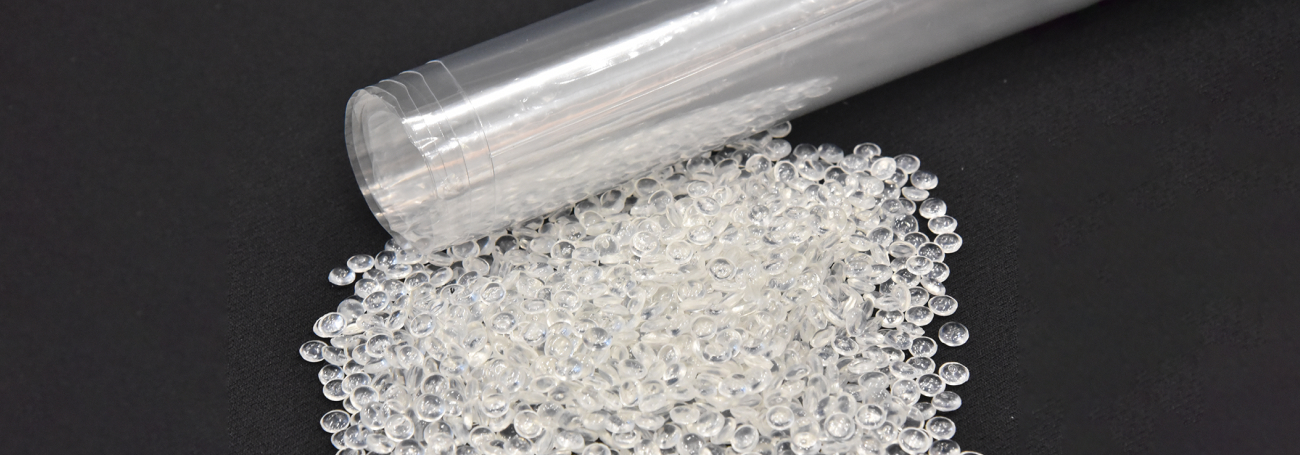
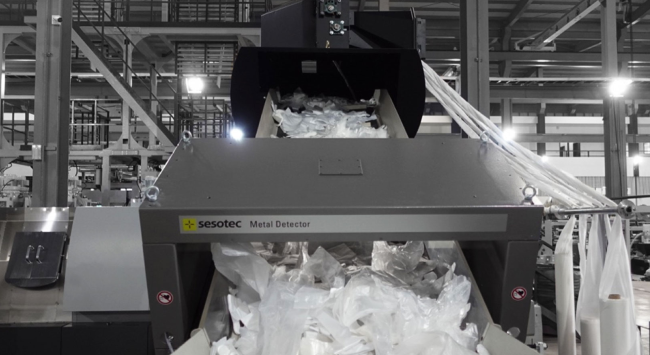
What are the post-industrial recycled contents for in-house recycling?
Many plastic scraps and defective plastic materials generated during production by plastic manufacturers or product converters can be an examples of post-industrial recycled contents. The most common ones are t-shirt bag cut-offs, HDPE/LDPE film and bag edge trims, printed and non-printed plastic film and bag wastes, raffia, woven bags, scraps blow molding pinch-offs, injection molding pinch-offs, and so on.
Why Plastic Producers Should Start In-House Plastic Recycling?
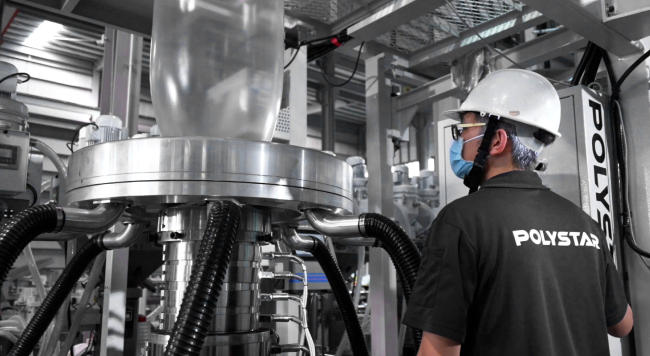
1. Recycling within the factory saves cost and time
When plastic producers outsource the recycling of their production scraps, they need to handle some pre-steps such as classifying and storing a certain amount of the waste in the facility that is worth enough to be sent out for recycling and transporting the wastes to the recycling facility. Besides, the producers also need to bear the outsourced recycling fee. After the recycling process, in most cases, the recycled pellets must back to the producers’ factories.
In contrast, in-house recycling eliminates many of these steps and saves the cost and time generated by the recycling process of production wastes such as edge trims, defective bags and films, plastic lumps, plastic bulks, and many more. Because recycling production scraps within the factory does not require logistics and outsourcing fees. Moreover, it gives freedom to the producers to optimize production and recycling processes and minimize storage time and space.
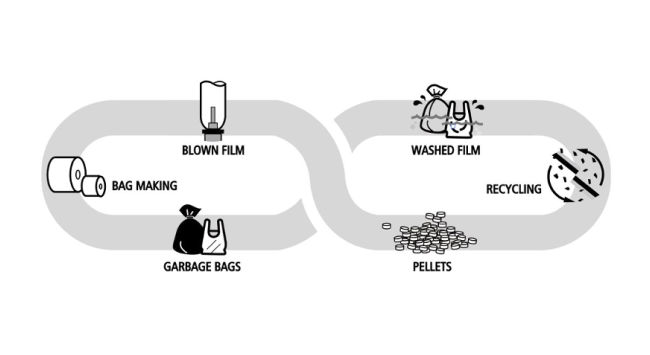
2. Creating a circular economy
Manufacturers are required to use more recycled materials in their plastic products. This lowers the cost of production as well as carbon footprint by minimizing virgin material usage. Especially film and bag manufacturers must obey governmental regulations in order to increase recycled materials usage to sell their products in certain markets such as Europe and the US. In this case, one of the most efficient and less costly ways to acquire recycled resin is using your own post-industrial recycled material in the production.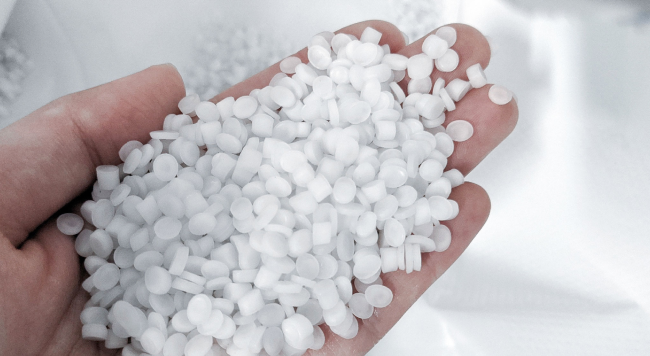
3. Better control of recycled materials for production
Optimizing recycling efficiency and obtaining recycled pellets that have the same quality and characteristics can be easily achievable when the same input is reprocessed in a stable recycling machine. However, in some cases, even if the materials are made of the same polymer, the characteristics might be varied and hard to distinguish without advanced tools.
In terms of in-house recycling of plastics, manufacturers know their material characteristics very well, and the materials are most likely to be prevented from contamination and humidity. These can result in 100% of the same type of in-house recycled pellets back to the production lines directly. This helps the manufacturers maintain quality control of the final products.
4. Creating economic value
Recycled content usage in production is encouraged by the law and industry. Therefore, there is a rising potential for in-house recyclers to sell their recycled pellets in the local and global markets. Injection molding, extrusion, and blow molding applications are most welcome for recycled pellets. These recycled contents (mostly PE and PP grades) are often used in for the production of such as detergent bottles, battery boxes, broom fibers, pipes, furniture, profiles, toys, benches, recycling bins, and trash cans.
In-house recycling customer case:
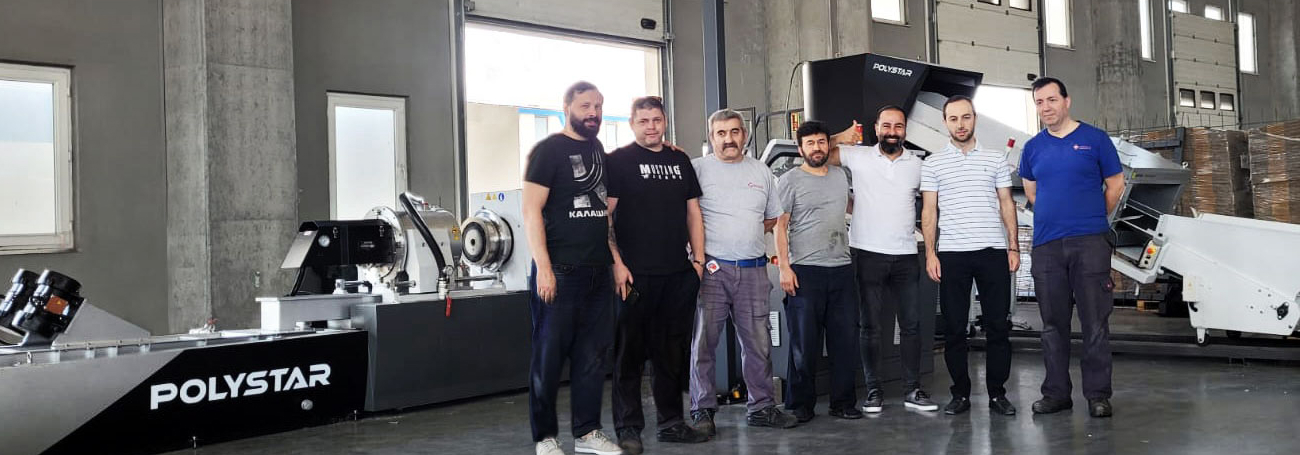
Recommended Machines for In-house Plastic Recycling
Since the in-house production wastes are varied, using a suitable recycling machine can help plastic producers to boost their in-house recycling efficiency. POLYSTAR provides various recycling solutions for different requirements of in-house recyclers as follows.
1. Repro-Flex cutter compactor recycling machine
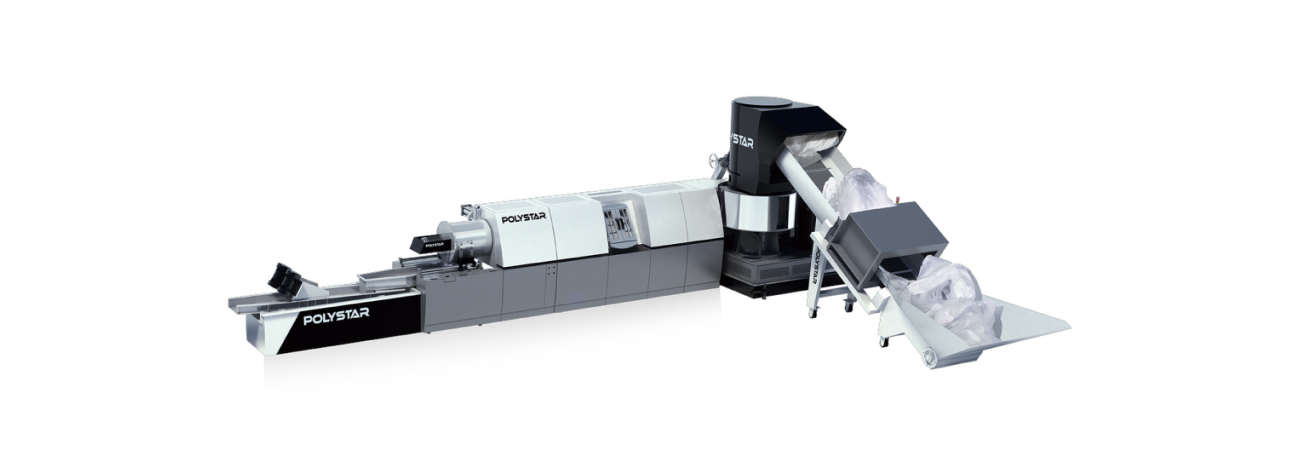
Thanks to the built-in cutter compactor and combination of cutting, extrusion, and pelletizing steps into one single machine, Repro-Flex brings a stable and one-step recycling advantage to the in-house recyclers. The machine is designed for recycling a wide range of materials including film and bag wastes, stretch film, multilayer films, pre-shredded regrind, and washed and dried film flakes.
The integrated cutter compactor of Repro-Flex cuts, pre-heats, and compacts the materials, thus the materials are ready for a smooth immediate extrusion process. Then, the semi-molten material is directly fed into the recycling extruder. In this system, the materials are not required to be pre-cut before the recycling process. This provides the in-house recyclers time, space, and labor advantages as well as a consistent feeding for uniform pellet outputs.
2. Repro-Air air cooled recycling machine

Due to the compact size and easy to operate the feature, Repro-Air air cooled recycling machine is one of the popular choices for film and bag producers who are looking for a small plastic recycling machine that can fit near their production machines and does not take up much space in the factory.
Repro-Air does not use any water. Therefore, the pellets produced by the hot die face pelletizer are 100% dry and can be returned to the production process immediately. This model is suitable to recycle different types of HDPE, LDPE, LLDPE film and bag scraps, edge trims, and similar materials from in-house production. Multiple film rolls can be fed into the machine via a nip roller feeder at the same time without pre-crushing.
3. Repro-One shredder integrated recycling machine
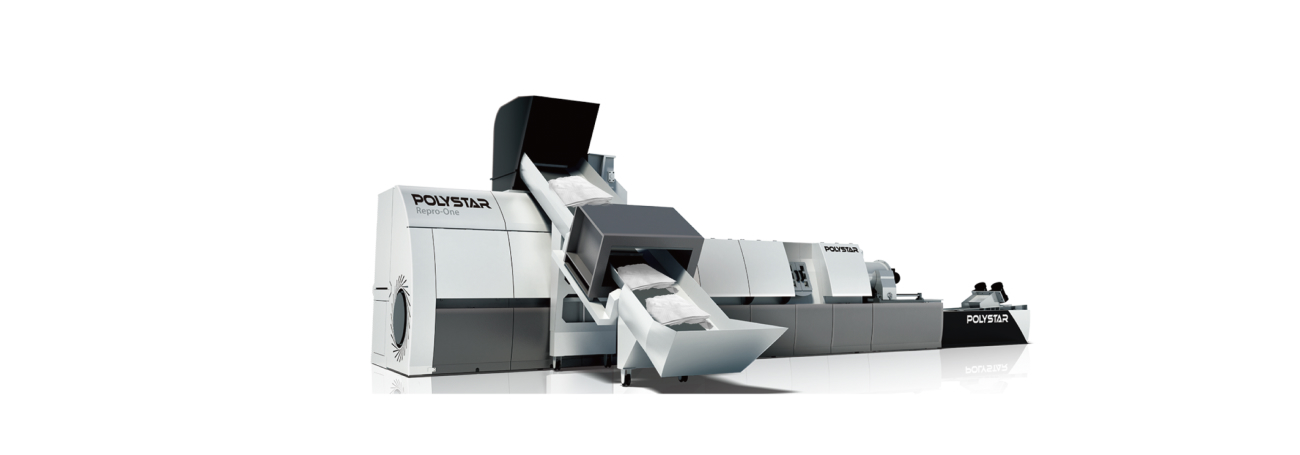
If you are a PP raffia, woven, non-woven, or rigid plastic manufacturer; Repro-One shredder integrated recycling machine will save you time, labor, and space with its one-step operation ability. Because, Repro-One has the advantage of combining shredding, extrusion, and pelletizing steps into a single recycling line with the help of the built-in heavy-duty single-shaft shredder. This machine is suitable for recycling plastic materials such as PP raffia, woven bags, blown film start-up lumps, purging, and plastic bottles effectively and without the need for a separate crusher.
Moreover, the integrated shredder ensures a lower temperature while processing the material to achieve minimal degradation of the material, which is crucial for pellet quality and pellet reusability in the production lines.
POLYSTAR provides various plastic recycling solutions for the evolving demands of plastic producers in 110 countries. To start recycling your factory plastic wastes in-house, contact POLYSTAR and we will help you to find a simple solution.
About the Author
Resul Gökpınar
International SalesResul creates up-to-date content based on his experience, gained by solving customers' problems in Turkey and the EMEA market.




